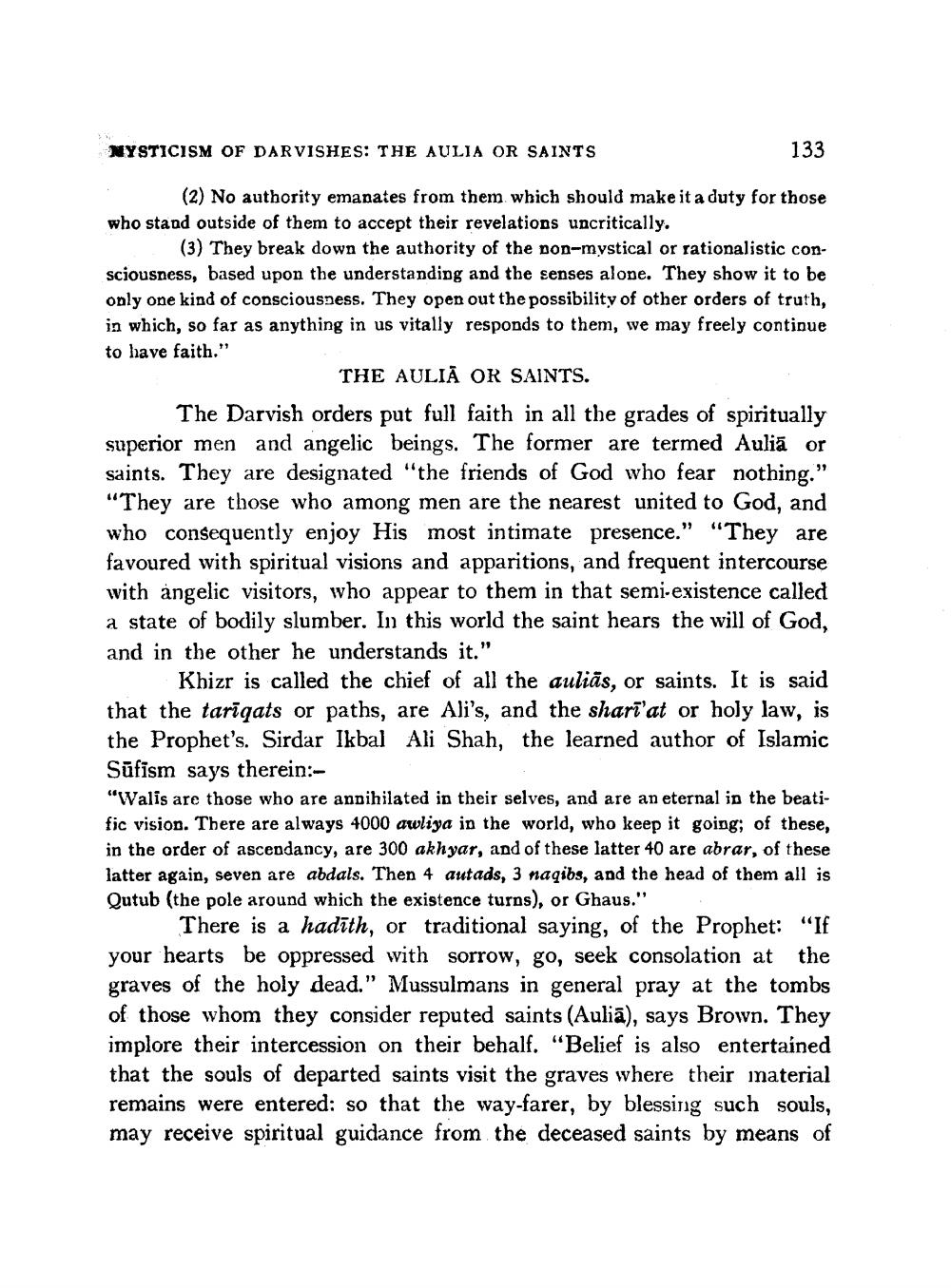________________
NYSTICISM OF DARVISHES: THE AULIA OR SAINTS
133
(2) No authority emanates from them which should make it a duty for those who stand outside of them to accept their revelations uncritically.
(3) They break down the authority of the non-mystical or rationalistic consciousness, based upon the understanding and the senses alone. They show it to be only one kind of consciousness. They open out the possibility of other orders of truth, in which, so far as anything in us vitally responds to them, we may freely continue to have faith."
THE AULIĀ OR SAINTS. The Darvish orders put full faith in all the grades of spiritually superior men and angelic beings. The former are termed Aulia or saints. They are designated "the friends of God who fear nothing." "They are those who among men are the nearest united to God, and who consequently enjoy His most intimate presence." "They are favoured with spiritual visions and apparitions, and frequent intercourse with ảngelic visitors, who appear to them in that semi-existence called a state of bodily slumber. In this world the saint hears the will of God, and in the other he understands it."
Khizr is called the chief of all the auliás, or saints. It is said that the tarīgats or paths, are Ali's, and the shari'at or holy law, is the Prophet's. Sirdar Ikbal Ali Shah, the learned author of Islamic Sūfism says therein:"Walis are those who are annihilated in their selves, and are an eternal in the beatific vision. There are always 4000 awliya in the world, who keep it going; of these, in the order of ascendancy, are 300 akhyar, and of these latter 40 are abrar, of these latter again, seven are abdals. Then 4 autads, 3 naqibs, and the head of them all is Qutub (the pole around which the existence turns), or Ghaus."
is a hadīth, or traditional saying, of the Prophet: “If your hearts be oppressed with sorrow, go, seek consolation at the graves of the holy dead." Mussulmans in general pray at the tombs of those whom they consider reputed saints (Auliā), says Brown. They implore their intercession on their behalf. "Belief is also entertained that the souls of departed saints visit the graves where their inaterial remains were entered: so that the way-farer, by blessing such souls, may receive spiritual guidance from the deceased saints by means of




